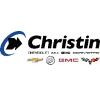In the first of a two-part series (see part 2), we look at some of the major highlights from this year’s event in Akumal, Mexico.
Over 100 dealers, vendors and automotive retail professionals gathered for the 2024 Motor Vehicle Retailers of Ontario (MVRO) President’s Members/Vendor Conference. The setting this year was picturesque Akumal, located on the Mayan Riviera in Southeastern Mexico, with the exclusive Secrets Akumal Resort serving as the host venue.
The conference, which ran from April 28 to May 3, provided some outstanding networking opportunities, as well as a chance to attend some top tier information sessions and partake in a range of activities both on and off the resort.
On arriving attendees were treated to welcome reception and dinner, following which, the first keynote session got underway.
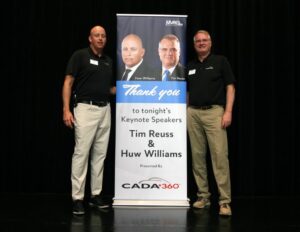
Federal updates
Following an introduction by MVRO CEO Todd Bourgon, Canadian Automobile Dealers Association President & CEO Tim Reuss and CADA’s Director of Public Affairs Huw Williams took to the stage, providing an update from the federal level on both the association’s progress as well as current political and legislative issues. Reuss acknowledged current CADA Chair Jonathan Hickman of Hickman Automotive Group (a previous CADA Laureate winner), and CADA CFO Michael Psotka, both of whom were in attendance, along with their significant others (Alison Hickman and Ingrid Till respectively).
Reuss discussed the current automotive industry landscape in Canada, noting that new vehicle sales continue to trend upward since the pandemic. In 2023, the overall market was up almost 12% leading to approximately 1.66 million new vehicles sold. In 2024, Reuss said that we’ve seen a slowdown in the market with dealers in many cases, finally delivering vehicles that had been ordered several months prior. Nevertheless, he acknowledged that things are starting to return to some sense of normality, with some OEMs able to fill dealer lots and even talk of renewed incentives and stair-step programs. He did note however, that there was still a risk of OEMs filling the pipeline with inventory and dealers being stuck with high financing rates and little in the way of incentives to move metal efficiently. Despite this, Reuss noted that predictions are still for increased sales volumes—with around 1.8 million new vehicles expecting to be sold in 2024, based on growth projections of around 10% for the year.
Nevertheless “a higher for longer” interest rate environment is expected to persist for a while, and dealers need to be prepared for that.
Strategic initiatives
Moving onto CADA’s strategic initiatives, Reuss talked about four areas of focus for the association, namely Evolving Business Models, EV Transition, Right to Repair and Dealer Council Engagement.
On the subject of evolving business models, Reuss discussed the rise of direct sale and agency retail models, that some OEMs have been pushing, which require a complete rethink of contractual arrangements, while others are gradually encroaching on dealers’ independence when it comes to selling vehicles. Reuss said there is a possibility that future dealer profitability could be at risk, as well as declining equity if OEMs try and exercise ever more control over the retail process.
Regarding the EV transition, he referred to a “Battle on Three Fronts.” Firstly, there’s ambitious mandates we’ve seen from G7 governments over the last several years and in Canada at both the federal and provincial level (with British Columbia and Quebec aiming to introduce even more stringent targets with, respectively, 90 and 85% of all new vehicle sales to be EVs by 2030). Secondly, Reuss looked at concerns regarding unreasonable facility upgrades being pushed on dealers by the OEMs and finally, he highlighted the danger of consumer perception that dealers could be seen as an obstacle in the transition to electric vehicles.
Reuss noted that while this environment is already putting pressure on dealers, industry associations, both CADA at the federal level, as well as provincial dealer associations are working hard toward adjusting aggressive government mandates and factory imaging and facility upgrades from OEMs. “Engage with us and your provincial associations,” he said. “Stay informed and reach out to your fellow dealers and demand answers from OEMs,” Reuss stated. He also talked about CADA’s 2024 Workforce Study and Economic Impact Report, noting that in Canada, automotive retailers provide $28 billion of GDP and $6 billion in tax revenue for the government, something that needs to be considered by politicians and legislators at both the provincial and federal level.
Legislative happenings
Speaking of legislation, CADA’s Director of Public Affairs, Huw Williams provided an update on what’s happening in Ottawa.
He noted that since the pandemic, things just don’t seem to be working. “Public servants are not accessible to the Canadian population,” he said.
Williams talked about the recent 2024 federal budget, which has received widespread criticism, even from former Liberal MPs. He noted that today, there is a strong anti-business and anti-automotive sentiment at the federal level of government, making it challenging to get things done. “Today, we have to talk frankly to decision makers,” Williams said, noting that in order to gain any traction, getting CADA’s message out into the hands of the media is essential, particularly at the regional and local level. He noted that the current official opposition party, the Conservatives are very much business-oriented and focused on small and medium-sized enterprises. And, while the winds of change are clearly blowing through Parliament Hill and the current government’s popularity has sunk to an all-time low, a federal election is still some ways off—meaning that for now, dealers and business professionals have to navigate the current political landscape as best as they can.
Another serious issue impacting the automotive industry at present is vehicle theft. Since 2015, it has skyrocketed with the rate in vehicle thefts increasing 300%! Yet, in order to get attention focused on this issue it has required a concerted effort from CADA, provincial associations such as MVRO and the auto industry to keep pushing out the seriousness of this issue to the media and into the public spotlight. While finally, we’re seeing results, including recent police busts that have netted 600 stolen vehicles destined for export from the Port of Montreal—a lot more work needs to be done to combat this serious problem. Williams noted that dealers really can make a difference, leveraging the impact they have on the economy at both a national and regional level, as well as massive consumer events like the Canadian International AutoShow. “The AutoShow is a real economic driver in Toronto and an opportunity for opposing political caucuses,” stated Williams.
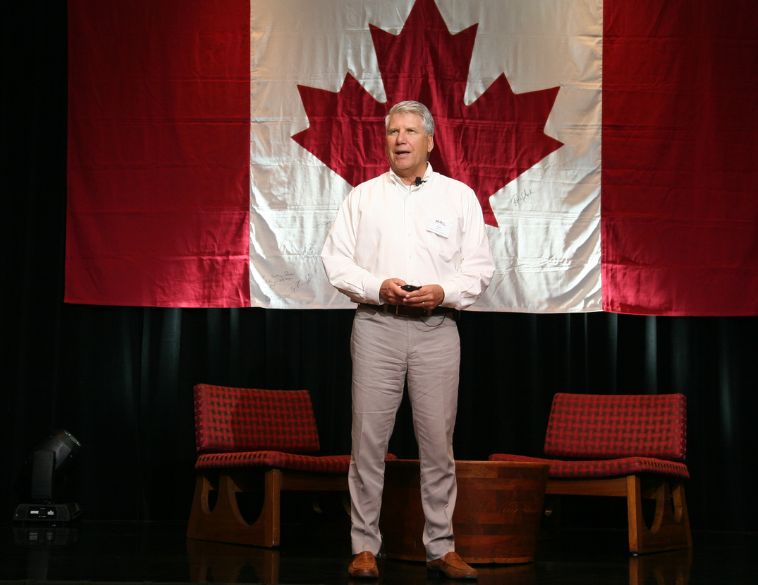
Lessons learned
A major highlight of this year’s MVRO President’s Conference was a fascinating and very personal keynote speech from Don Romano, President & CEO of Hyundai Auto Canada. Entitled “Lessons from Around the World,” Romano talked about his past experiences, including how he first got involved in the automotive industry. He talked about his time working in automotive retail in Jeddah, Saudi Arabia, where the concept of vehicle purchasing is very different to what we’re used to here in North America.
Romano said his two-year tenure working in the Middle East as Executive Senior Director for a major OEM proved eye-opening. “When I first went over there, to Jeddah, I had no idea what I was doing,” said Romano. Not only was the climate a complete change from what he was used to, so were local business practices and customer service. Romano’s role was further complicated by the fact that his sales territory covered everywhere from Afghanistan to Morroco and that not long after he went out to Saudi, the infamous Arab Spring of 2011 took place. “Suddenly, there were protests everywhere,” he stated, “and I had to learn very quickly to just focus on our business.”
Another lesson Romano learned was that coming from a corporate role, doesn’t mean that management always knows best and that often the best approach, no matter which market you happen to be operating in is often to observe and learn the business before making any major decisions. Romano said he learned this early on in Saudi when cars were being delivered to customers by the dealership. “Coming from the corporate world I figured I knew what best practices were, so I instructed the staff to detail every car.” It turned out that doing so actually a negative impact on customer satisfaction and sales, and so the practice went back to having cars not detailed prior to delivery. Another stumbling block was establishing a Saudi Women’s Driving school, which initially had huge pushback and generated widespread protests. Nevertheless, Romano said it proved a lesson well-learned and today, women regularly drive in Saudi Arabia.
Different business model
Romano also noted that unlike North America where official sales and service agreements, contracts and a myriad of regulations are the norm for franchise dealers, during his time in Saudi, most sales and franchise agreements were conducted with a simple handshake and there was no such thing as facility programs or other OEM requirements. Instead, dealers were encouraged to build and model stores based on what they felt the customer needs were in their local market. Romano said once he began to really understand the business and culture, things really took off. “We grew the business to over 400,000 cars,” he said, “and we expanded into Europe and Asia. We also started our own finance company and ultimately put together one of the best training programs in the industry.” As a result, the organization broke every record and became number one in CSI, with highly profitable dealers and over 50 percent market share.”
Check back with us for Part 2 of our coverage where Don Romano has a fireside chat with famed sports announcer and interviewer Rod Black, former Olympian Elizabeth Manley shares her story and her efforts in helping combat mental health and John Datseris from GNR8R breaks through all the noise and chatter surrounding AI and machine learning, to show how it can really be effective for our businesses, our staff and our customers.
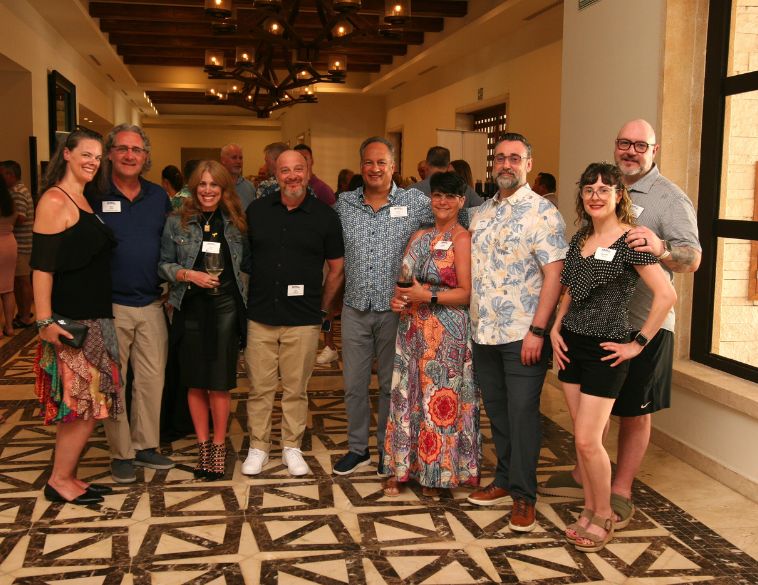

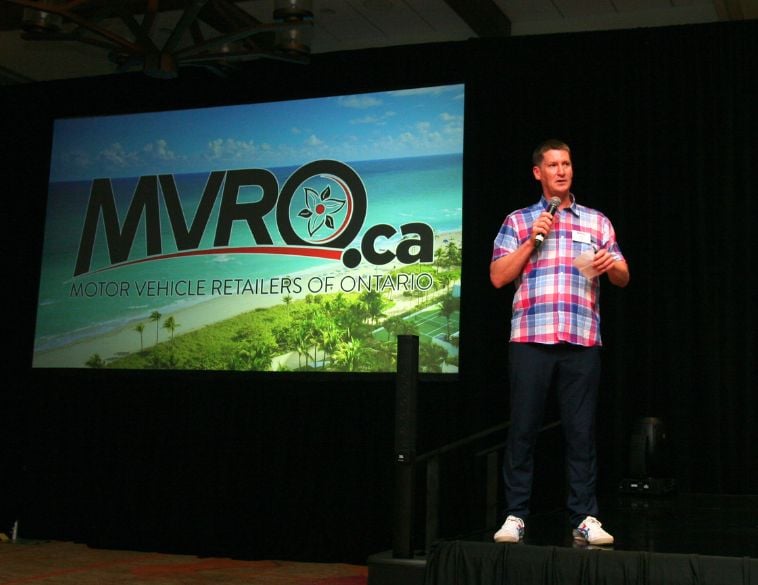

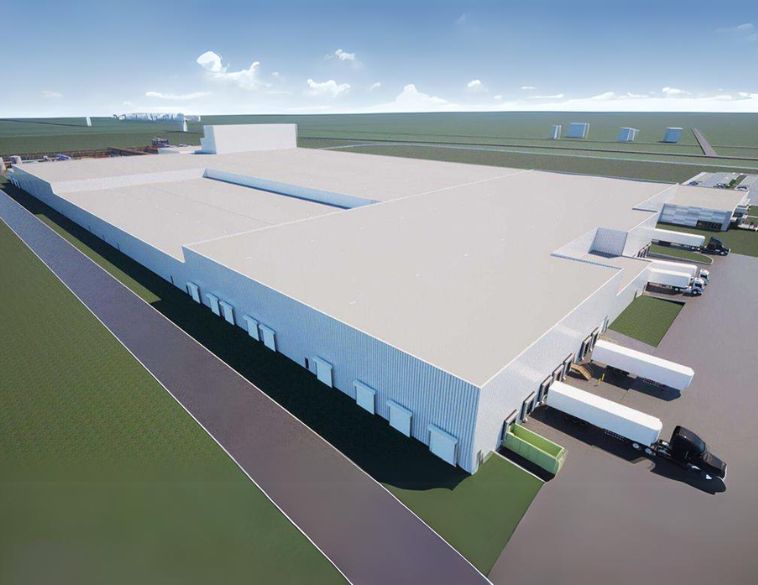


 BOUCHERVILLE
BOUCHERVILLE Full time
Full time


